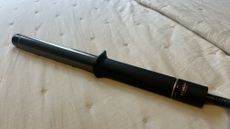Home Living
The latest Home Living breaking news, comment, reviews and features from the experts at T3
Explore Home Living
-

Lidl’s new indoor pizza oven looks like a toastie maker – and it’s under £60!
Lidl takes on Ooni with its very own indoor pizza oven
By Bethan Morgan Published
-

Philips Hue is set to upgrade your Lucca lights – but not in the way you’d expect
Your Philips Hue Lucca lights are getting a great bulb upgrade
By Bethan Morgan Published
-

Ninja's first-ever gas barbecue is finally available to buy in the UK – here's all you need to know
It's been exclusive to the US for just under a year
By Lizzie Wilmot Published
-

I think I've found the easiest self-install smart lock – and it's from Xiaomi
It's designed to work alongside your existing lock
By Lizzie Wilmot Last updated
-

How to connect your IKEA smart home gadgets to Amazon Alexa
I've done the trial and error so you don't have to
By Lizzie Wilmot Published
-

Watch out, Le Creuset – Smeg’s new cookware is luxurious, colourful and surprisingly affordable
Smeg debuts new cookware, made in Italy
By Bethan Morgan Published
-

Husqvarna unveils 3 entry-level robot lawn mowers for small and mid-size gardens
Each model is wire-free and built to deliver effortless lawn care
By Lizzie Wilmot Published
-

This new Shelly-powered smart ceiling light comes at a shockingly low price
...especially when compared to a few competitors
By Lizzie Wilmot Published
-

Haier I-Master Series 3 Flex Double Drawer Air Fryer review: a huge, flexible family-sized mini oven
A huge, flexible drawer and a genuinely useful window – but the 200°C ceiling and clunky controls stop it from being a Ninja-killer
By Lee Bell Published
-

Philips Hue’s new automation tool has arrived – here's all you need to know
We first heard about it last month
By Lizzie Wilmot Published
-

International Pizza Day 2026: 21 pizza-making appliances and accessories to make the best pizzas
From pizza ovens to peels, here’s everything you need to make delicious pizza
By Bethan Morgan Published
-

SwitchBot's new smart home hub will bring AI automation directly into the home
It aims to deliver a more responsive smart home experience
By Lizzie Wilmot Published
-

NextSense debuts ‘world’s first’ wireless EEG sleep earbuds that measure brain activity to help you sleep
These sleep earbuds “go beyond passive monitoring to actively improve sleep”
By Bethan Morgan Published
-

3 reasons why this electric toothbrush is about to take over in 2026
It's clear the new Quip Ultra Lite has been designed with real routines in mind
By Lizzie Wilmot Published
-

Apple gives final warning to Home app users to update their software – here’s what happens if you don’t
You’re on your final warning, Apple Home app users…
By Bethan Morgan Published
-

3 tiny power banks that are still impressively powerful – and priced under £35
Each one is a great pick for anyone who’s always on the move
By Lizzie Wilmot Published
-

So you want to upgrade your heating – these 5 smart thermostats are worth knowing about
From Tado to Google Nest, these are the smart thermostats I’d recommend
By Bethan Morgan Published
-

Should you sleep in headphones? Audio expert gives their verdict
3 hidden dangers to sleeping in headphones and what to do instead
By Bethan Morgan Published
-

IKEA's cheapest smart home gadget is also my favourite – here’s why
I find myself reaching for the BILRESA remote control more than anything
By Lizzie Wilmot Published
-

Best air purifier 2026: remove allergens, particles and pollution from your home
Improve the quality of the air you breathe with the best air purifiers from Blueair, Dyson, Philips and more
By Bethan Morgan Last updated
-

Best petrol lawn mower 2026: power and precision for your garden
Tackle your lawn with one of these top petrol-powered lawn mowers
By Lizzie Wilmot Last updated
-

Revamp Effortless Curls Extra-Long Ceramic Tong review: an affordable curler that outperforms its price tag
Find out why this has quickly become one of my favourite hair stylers
By Lizzie Wilmot Published
-

I didn’t expect Xiaomi to make an espresso machine – but I wish I’d had it when I was at university
Xiaomi’s Mijia coffee machine is compact, clever and can sit at your desk
By Bethan Morgan Published
-

Philips Hue’s new update means more people can finally try its AI assistant
It first arrived in June last year
By Lizzie Wilmot Published
-

Forget Instant Pot – Ninja’s new pressure cooker is speedy, powerful and looks the part
Ninja debuts HyperHeat Pressure Cooker, but there’s a slight catch
By Bethan Morgan Published
-

Eufy launches new robot vacuum with 5-in-1 docking station – at a much lower price than previous models
The new Eufy C28 is half the price of the Omni S2
By Lizzie Wilmot Published
-

Your Apple HomePod has an underrated ‘hidden’ feature that seriously upgrades your automations
This hidden HomePod feature might not sound like much, but it’s insanely useful
By Bethan Morgan Published
-

Can regular yoga improve your sleep quality? I talked to a sleep expert to find out
Yoga has been shown to improve sleep quality but what is it about the practice that means we get a better night’s rest?
By Kat Bayly Published
-

Always cold? These 3 cheap heater deals will definitely warm you up
Get over 40% off DREO, Duux and Shark heaters
By Bethan Morgan Published
